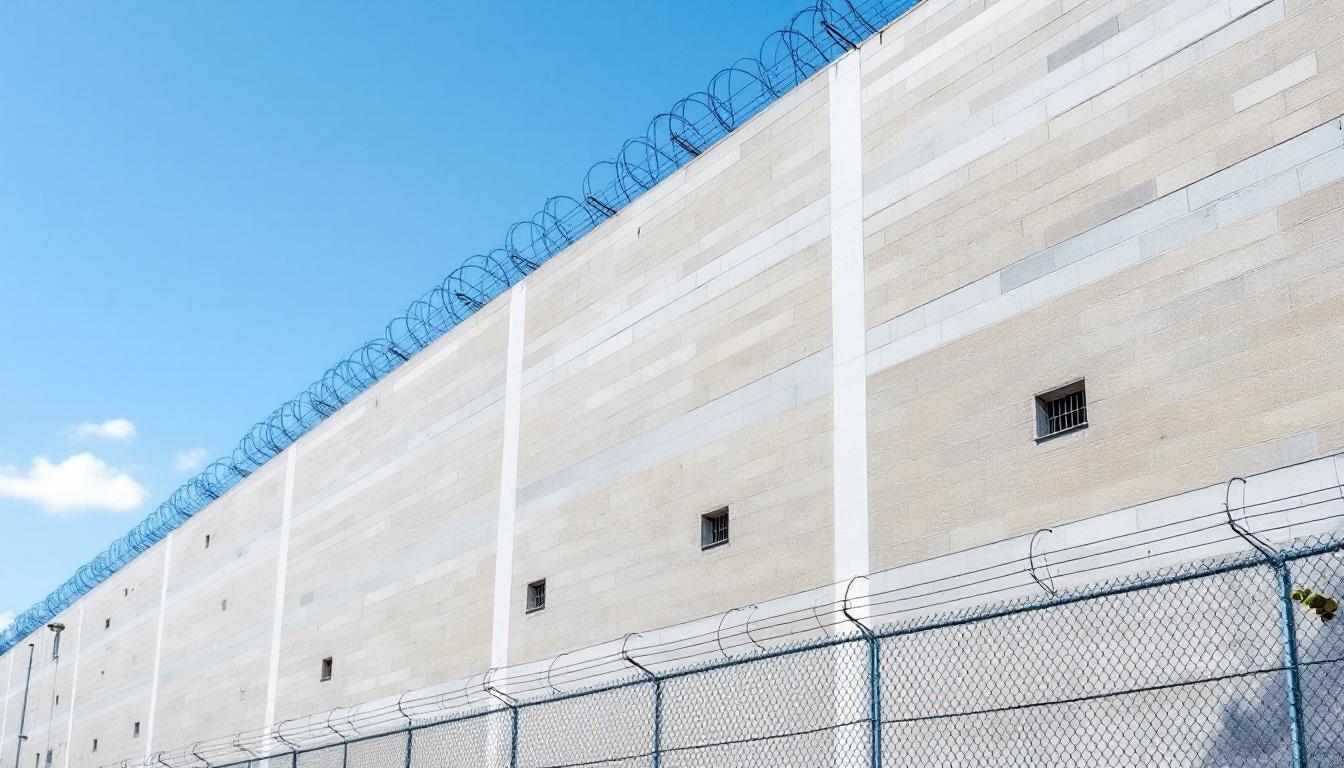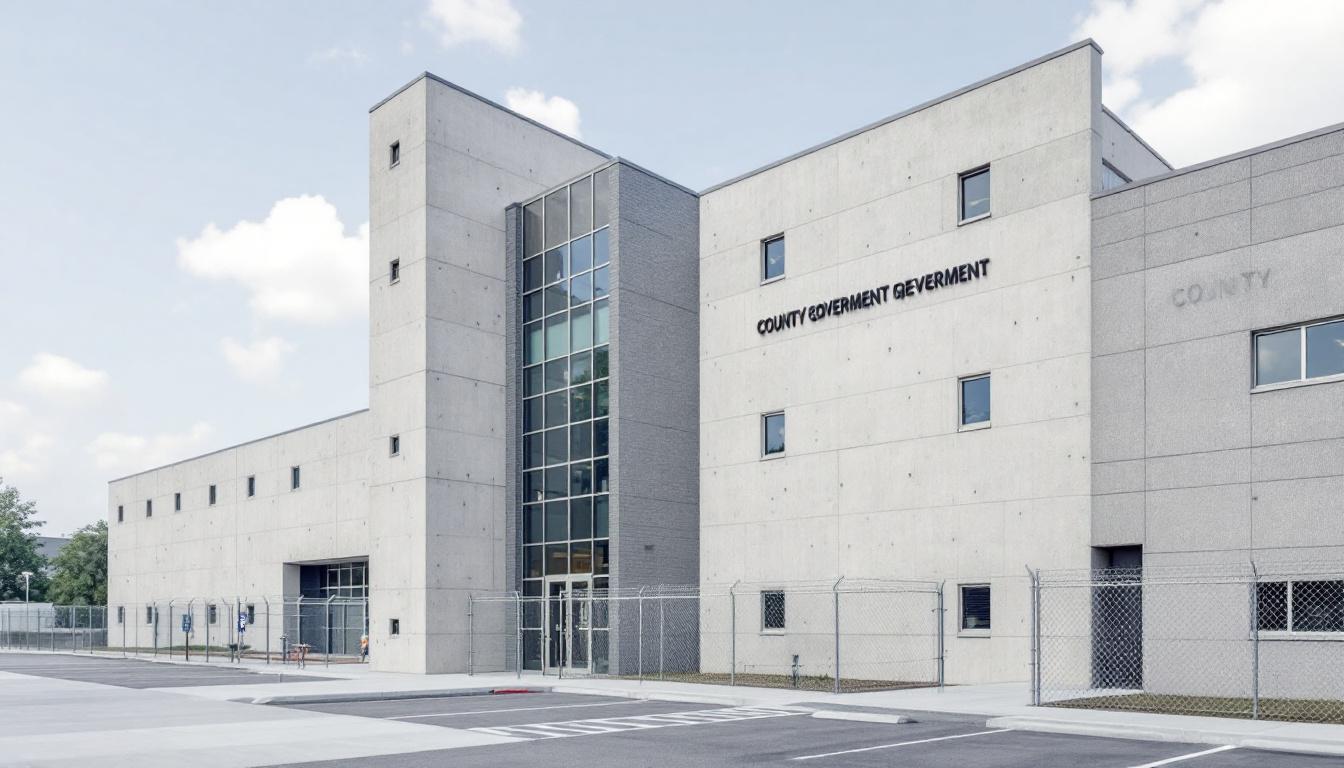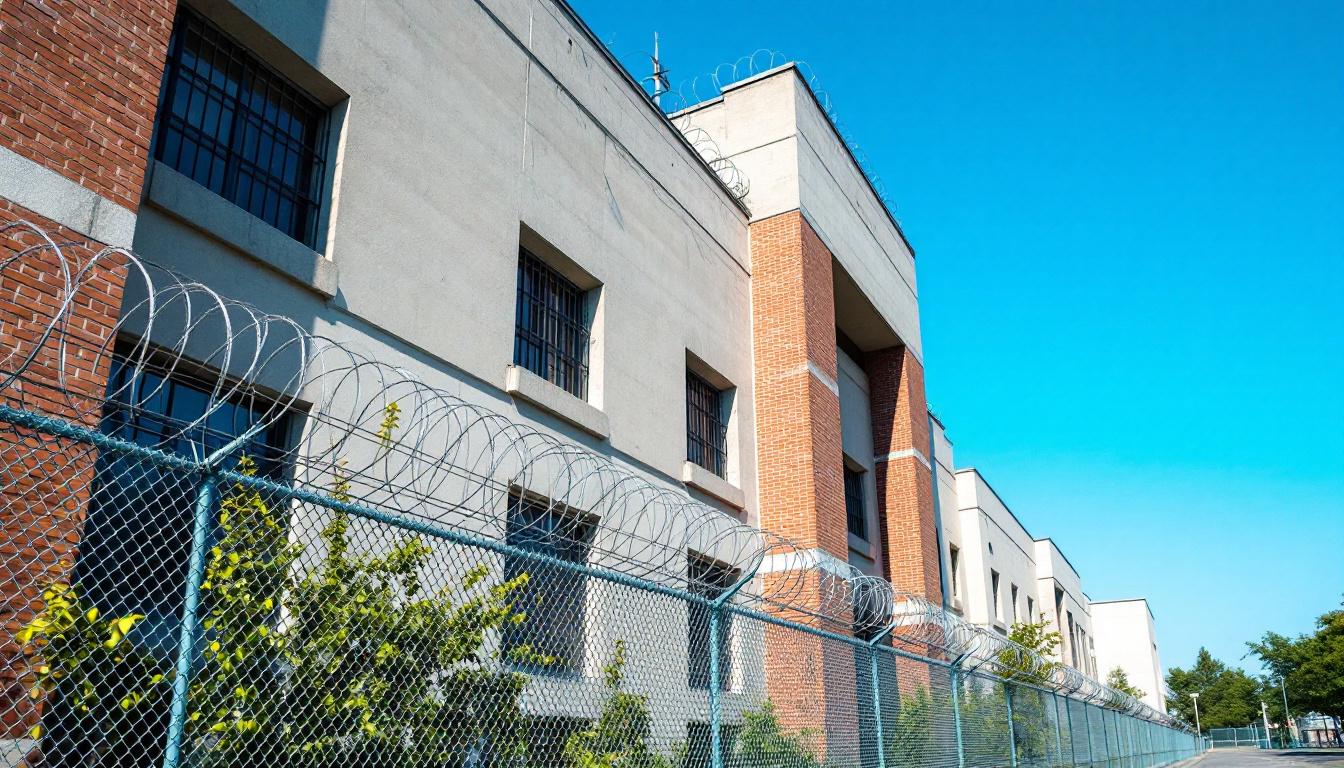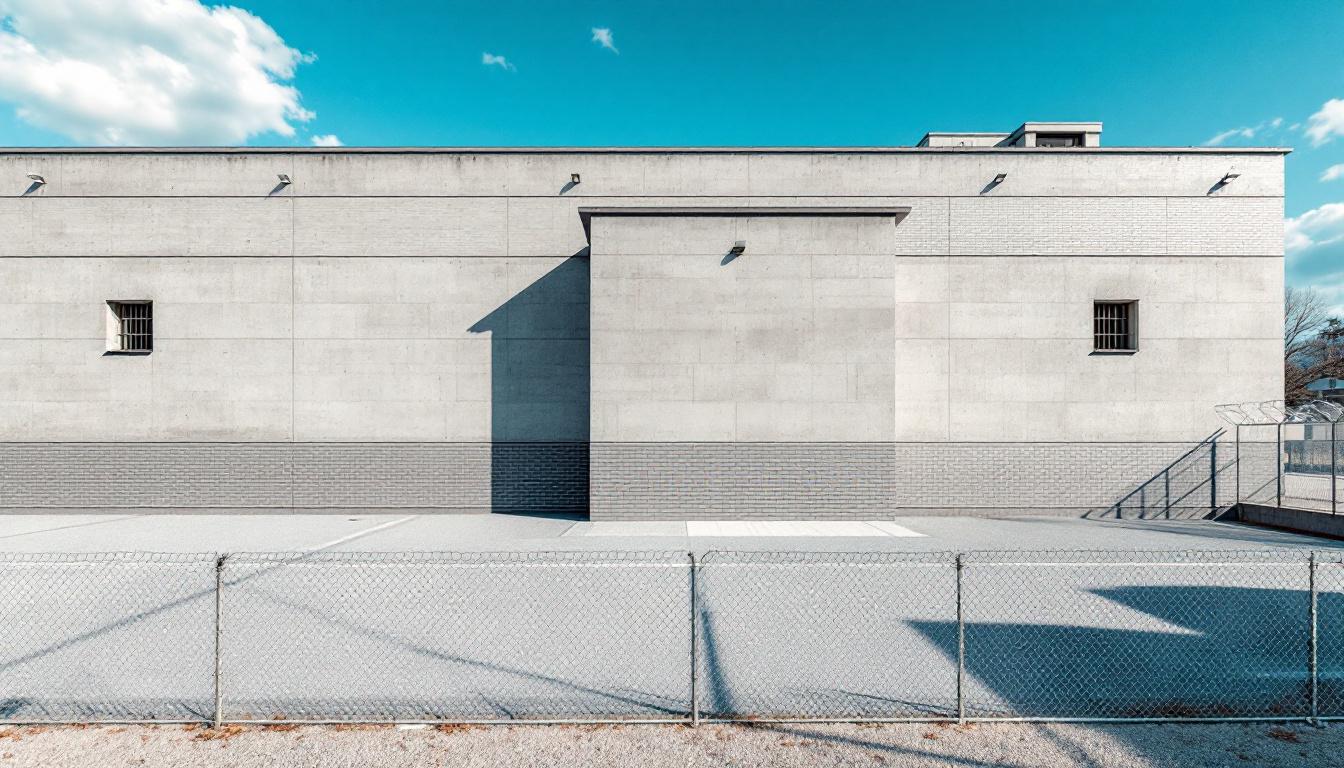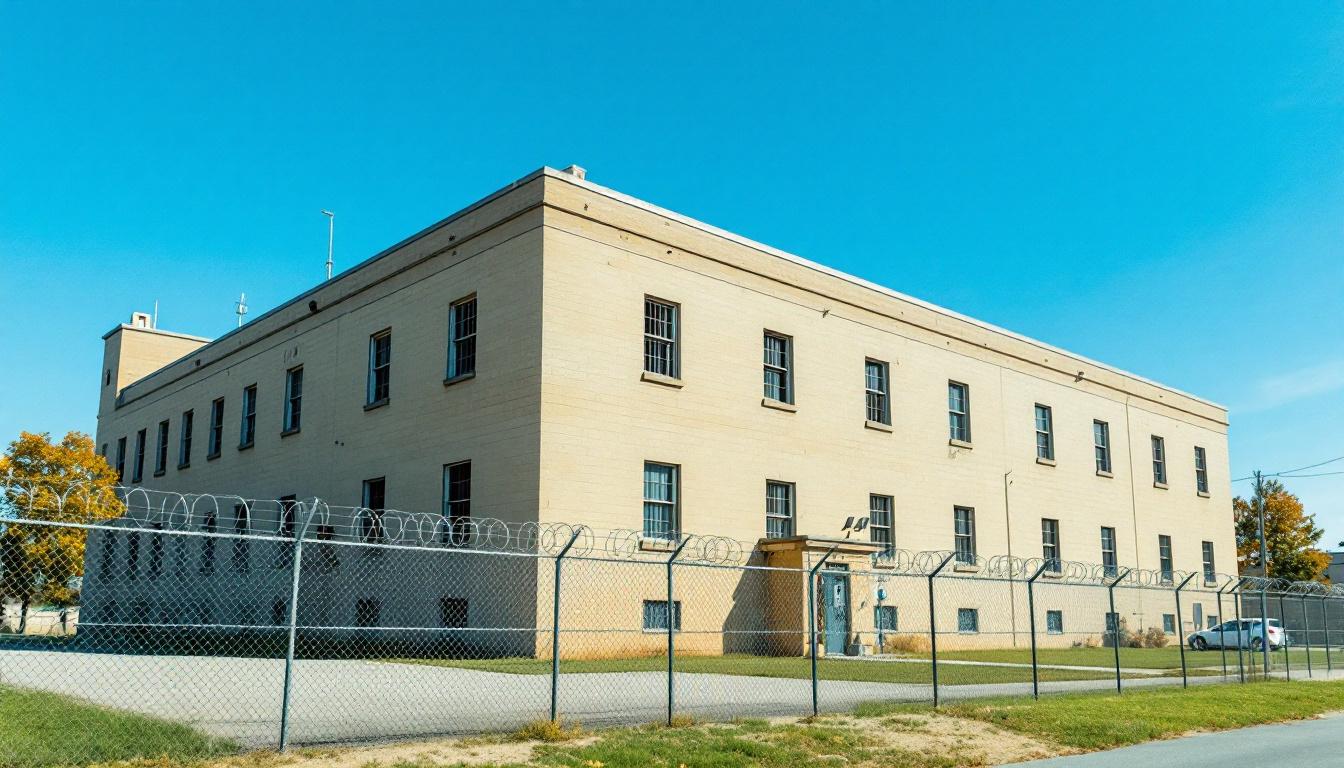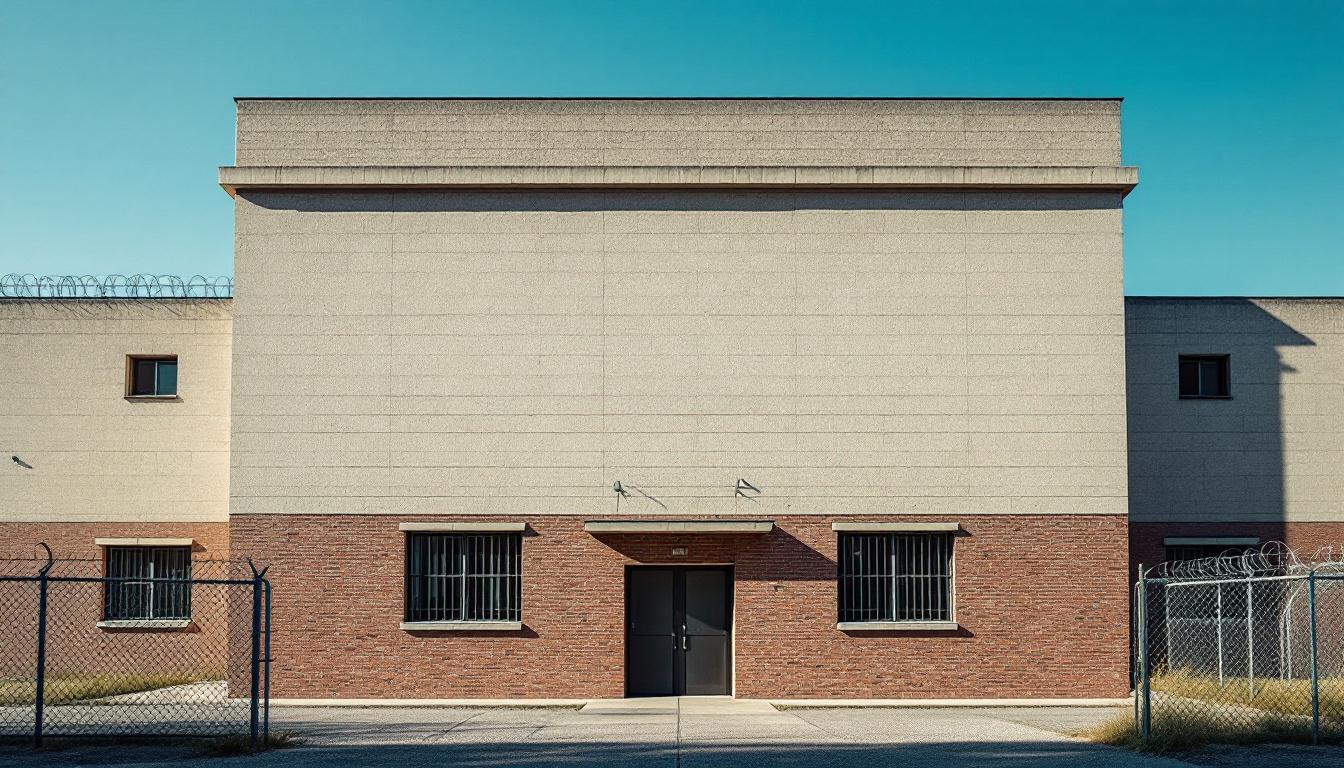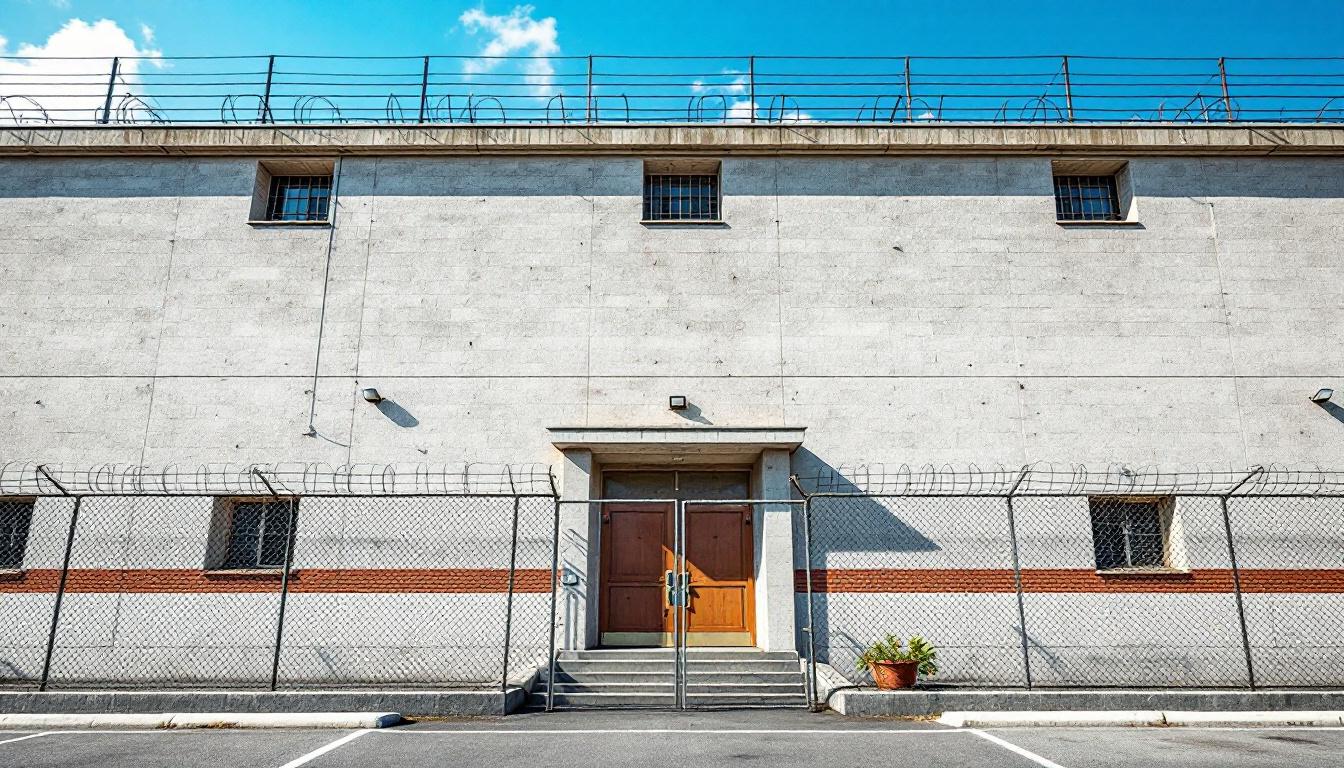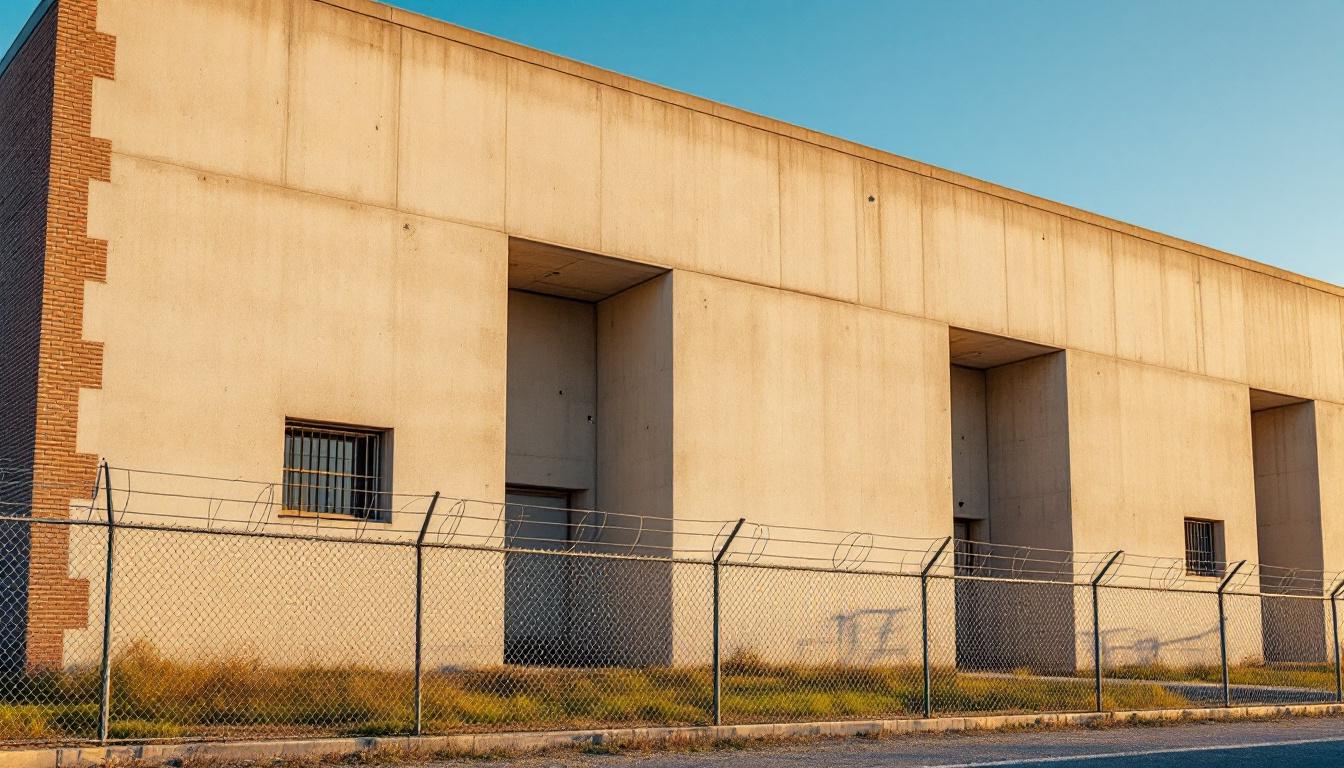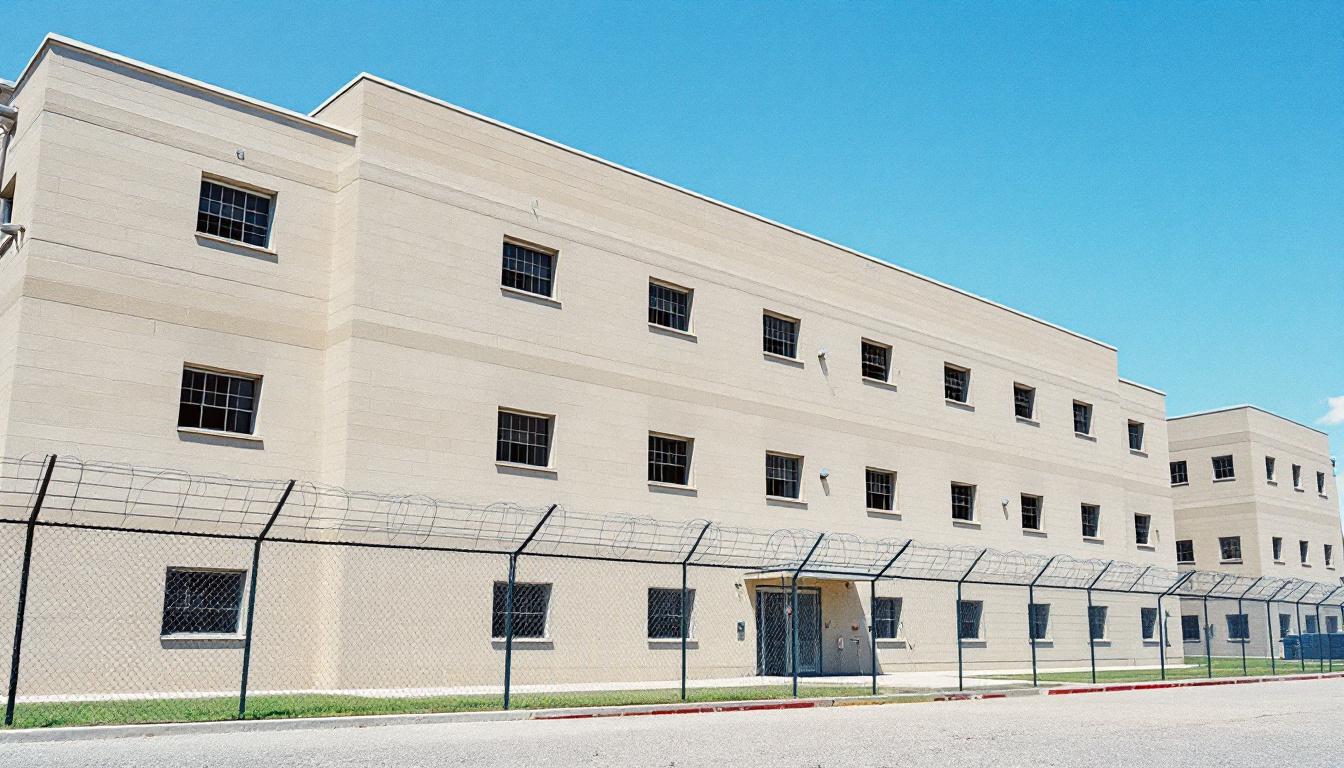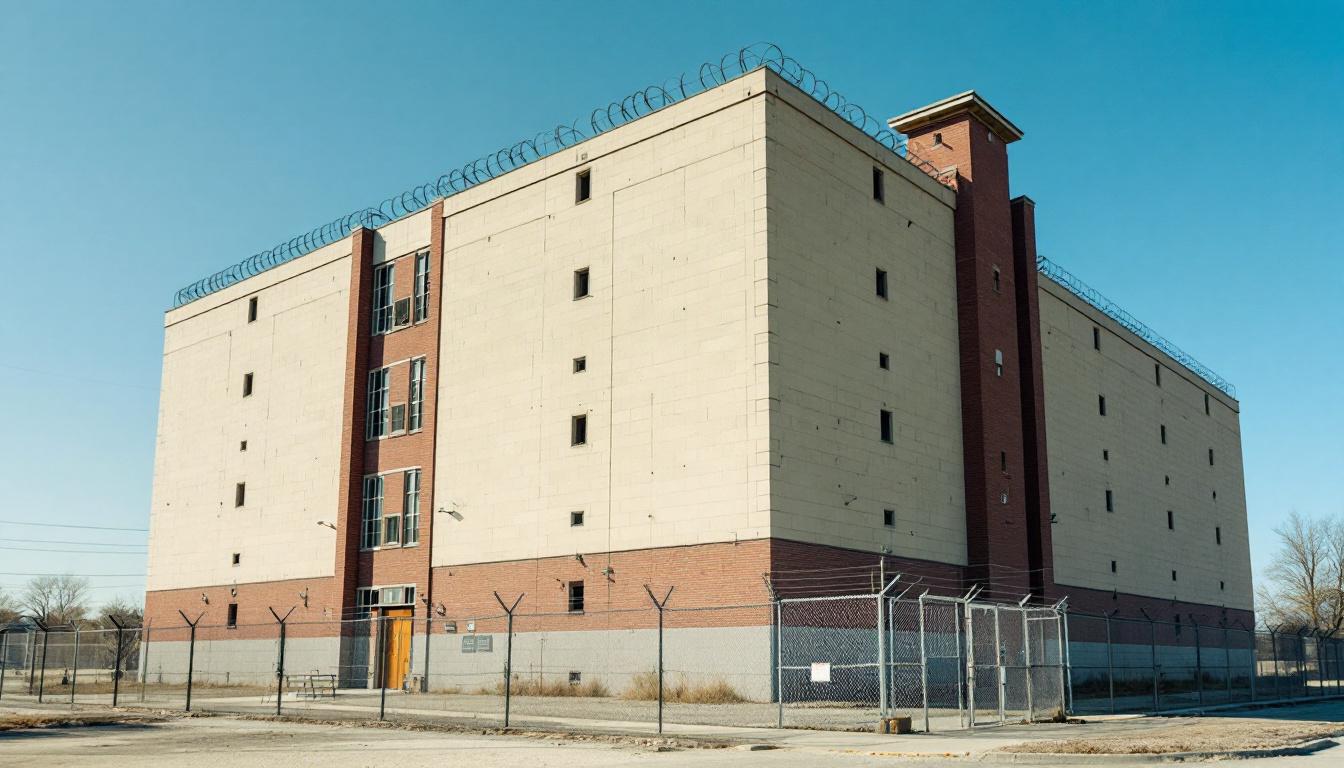
Quick Navigation
How to contact an inmate at Joe Ney State Jail
This comprehensive guide will walk you through how to connect with an inmate at Joe Ney State Jail. Follow the steps below to find an inmate and send letters and photos:
- Search for the inmate using our search tool below
- Create your account or log in to Penmate
- Write your message (up to 6,000 characters)
- Send instantly - inmates receive printed copies daily
Find an Inmate
Search for an inmate to start communicating today
Tip: You can search by first name, last name, or inmate ID number
To contact a person at Joe Ney State Jail start by searching for the person on the official facility website. Perform a search by following these steps:
- Step 1: Enter their first name and last name into the search form and click "Search"
- Step 2: Locate their inmate record
- Step 3: Write down their Inmate ID and any housing information provided
Important! Be sure to enter the person's full name. Nicknames should not be used.
How to Send Messages to Inmates

You can use your phone or computer to send emails, letters, and photos to an inmate. Messages are sent electronically to inmate tablets or kiosks at the facility. If you would like to send a message, start by searching for an inmate at Joe Ney State Jail.
Sending Photos and Postcards

A great way to send love and support to a loved one at Joe Ney State Jail is to send photos and postcards. It only takes a few minutes to send photos from your phone and it makes a huge difference. You can also mail postcards with words of support and inspiration, or design your own postcard for special moments like birthdays and holidays.
Important! Be sure not to send any explicit photos or they may not be approved by the facility. You can also use a photo printing app like Penmate to make sure your photos are printed at the correct size (4x6 or 3x5) and are mailed according to the rules and regulations of Joe Ney State Jail.
Frequently asked questions about Joe Ney State Jail
-
How long does it take to deliver a message?
If you're sending an email message your letter is usually delivered within 24-48 hours. For messages sent via mail you should expect delivery within 3-7 days. All messages will need be approved by Joe Ney State Jail.
-
How much does it cost to send a message to Joe Ney State Jail?
You can send a message free using your phone or mail a message via USPS for the price of a $0.60 stamp and envelope. You can also purchase credits or e-stamps from services starting at $1.99.
-
What services can I use to contact an inmate at Joe Ney State Jail?
Penmate
You can use Penmate to send letters and photos to an inmate from your phone. It's an easy way to stay in touch during your loved one's incarceration. Use the inmate locator to find an inmate's location and contact information, then you can send messages within a few minutes.
Securus messaging
Securus may be another option for communicating with an inmate at Joe Ney State Jail. You can create a friends and family account and purchase credits to send messages. All messages will be reviewed and must be approved by the facility.
JPay
Some county jails and state prisons may support sending messages with JPay. You must register an account with the system, find your loved one, and purchase stamps to send messages. For some locations you can also attach photos.
Smart Jail Mail
You may also check if Smart Jail Mail is available at Joe Ney State Jail. Smart Jail Mail is operated by Smart Communications and has contracted with some state and county jails. After purchasing credits, your messages and photos are sent to the facility, printed out, and then handed out to your loved one.
-
What is the mailing address of Joe Ney State Jail?
Mailing address:
Joe Ney State Jail
114 Pvt Rd 4303
Hondo, TX 78861
Phone: (830) 426-8030 -
What are the visiting hours at Joe Ney State Jail?
Visiting hours at Joe Ney State Jail vary by housing unit and security level. Generally, visits are scheduled on weekends and holidays, with some facilities offering weekday visits. Contact the facility directly at (830) 426-8030 or check their website for the current visiting schedule. Visits typically last 30-60 minutes and must be scheduled in advance.
-
What items are prohibited when sending mail to Joe Ney State Jail?
Prohibited items typically include: cash, personal checks, stamps, stickers, glitter, glue, tape, staples, paperclips, polaroid photos, musical or blank greeting cards, hardcover books, magazines with staples, and any items containing metal or electronics. Only send letters on plain white paper with blue or black ink. Photos must be printed on regular photo paper (no Polaroids). Always check with Joe Ney State Jail for their specific mail policies.
-
How do I send money to an inmate at Joe Ney State Jail?
You can send money to an inmate at Joe Ney State Jail through several methods: 1) Online using JPay, Access Corrections, or the facility's approved vendor, 2) Money orders mailed directly to the facility with the inmate's name and ID number, 3) Kiosks located in the facility lobby, or 4) Over the phone using a credit or debit card. Fees vary by method, typically ranging from $2.95 to $11.95 per transaction.
-
Can I schedule a video visit with an inmate at Joe Ney State Jail?
Many facilities now offer video visitation as an alternative to in-person visits. At Joe Ney State Jail, video visits may be available through services like Penmate, Securus Video Connect, GTL, or ICSolutions. Video visits typically cost $10-20 for 20-30 minutes and must be scheduled in advance. You'll need a computer or smartphone with a camera and reliable internet connection. Contact the facility for their specific video visitation policies and approved vendors.
-
What identification do I need to visit an inmate at Joe Ney State Jail?
All visitors must present valid government-issued photo identification such as a driver's license, state ID, passport, or military ID. Minors must be accompanied by a parent or legal guardian who can provide the minor's birth certificate. Some facilities require visitors to be on the inmate's approved visitation list, which may require a background check. Contact Joe Ney State Jail for specific ID requirements and visitor approval procedures.
-
How can I find out an inmate's release date?
To find an inmate's release date at Joe Ney State Jail, you can: 1) Use the online inmate search tool if available, 2) Call the facility's records department, 3) Contact the inmate's case manager or counselor, or 4) Have the inmate provide this information during a call or visit. For privacy reasons, some facilities only release this information to immediate family members.
Facility Overview
Official Website

About Joe Ney State Jail
Situated within the broader Dallas metropolitan area, Joe Ney State Jail, TX operates as a significant component of Texas's correctional infrastructure, serving both local and state-level incarceration needs. This TX correctional facility typically maintains dual responsibilities, functioning to house individuals awaiting trial proceedings while simultaneously accommodating sentenced offenders serving shorter-term commitments under state jurisdiction.
The facility generally emphasizes evidence-based approaches to both security operations and rehabilitative programming, reflecting contemporary correctional practices common throughout the south region. Residents services may include educational opportunities designed to address literacy and basic academic skills, alongside vocational training programs that often focus on practical skill development. Mental health and substance abuse counseling typically form core components of the facility's programming structure, with services generally delivered through a combination of group sessions and individual treatment planning.
Within Dallas's correctional landscape, the facility generally maintains operational standards consistent with state regulations while adapting to the specific demographic and geographic challenges of urban incarceration. Security protocols typically balance the need for safe operations with program accessibility, allowing residents to participate in rehabilitative activities that may include work assignments, educational classes, and counseling services. The institution's approach to rehabilitation often incorporates preparation for community reintegration, with programs that may address employment readiness, family reunification planning, and community resource connections designed to support successful transitions upon release.
Programs & Services
Comprehensive rehabilitation through structured skill development forms the cornerstone of resident transformation initiatives, where evidence-based approaches merge with practical workforce preparation to address the multifaceted challenges of successful community reintegration. The facility's philosophy emphasizes that meaningful change occurs through sustained engagement in purposeful activities that build both technical competencies and personal accountability, creating pathways for residents to develop the tools necessary for long-term stability and productive citizenship.
Educational advancement and vocational training initiatives typically provide residents with industry-relevant certifications and hands-on experience in various trade sectors. These comprehensive programs may deliver instruction in construction trades, automotive maintenance, food service operations, and manufacturing processes, allowing participants to acquire marketable skills while serving their sentences. Moreover, prison industries initiatives often include supervised work environments where residents gain practical experience in production, logistics, and quality control processes, fostering both technical proficiency and workplace discipline that directly translates to post-release employment opportunities.
Support services and therapeutic initiatives encompass a broad spectrum of interventions designed to address the underlying factors contributing to criminal behavior while preparing residents for successful community transition. Faith-based initiatives may offer spiritual guidance and moral development opportunities for those seeking religious engagement, while specialized work programs typically provide structured employment experiences that build responsibility and work ethic. Housing assistance and job placement assistance initiatives often include pre-release planning services, connecting residents with community resources, temporary housing options, and employment opportunities that align with their newly acquired skills and personal circumstances, thereby reducing recidivism risk through comprehensive reentry support.
Daily Life & Visitation

The rhythm of carefully timed activities and scheduled responsibilities delivers a framework that many residents find surprisingly grounding during their time in custody. At present, the daily structure at Joe Ney State Jail actively revolves around consistent wake-up calls, designated meal periods, and organized programming sessions that help residents maintain a sense of purpose and routine. This predictable schedule typically includes morning counts, work assignments, educational opportunities, and recreational periods that break up the day into manageable segments, allowing residents to focus on rehabilitation and personal development goals.
Housing arrangements generally consist of dormitory-style living units where residents share sleeping quarters with multiple roommates, creating a community-like environment that requires cooperation and mutual respect. Whereas some facilities may offer single cells, this facility typically utilizes open bay housing that encourages social interaction while maintaining appropriate supervision levels. Residents usually have access to basic personal property storage, television viewing areas, and common spaces where they can engage with others during designated free time periods. Meals are typically served in a central dining area at scheduled times, providing balanced nutrition while offering residents an opportunity to socialize and maintain normal eating routines.
Moreover, the facility often delivers various programming opportunities including educational classes, vocational training, and recreational activities that help residents develop skills and maintain physical fitness. Work assignments may include kitchen duties, facility maintenance, laundry services, or administrative support roles that provide structure while teaching responsibility and work ethics. Family connections remain vital through scheduled visitation periods and telephone privileges, allowing residents to maintain important relationships with loved ones on the outside. These communication opportunities, combined with commissary access for personal items and snacks, help residents feel connected to their support systems while serving their sentences in a structured, secure environment.
Ready to Connect?
Start communicating with your loved one today
Search for an Inmate
